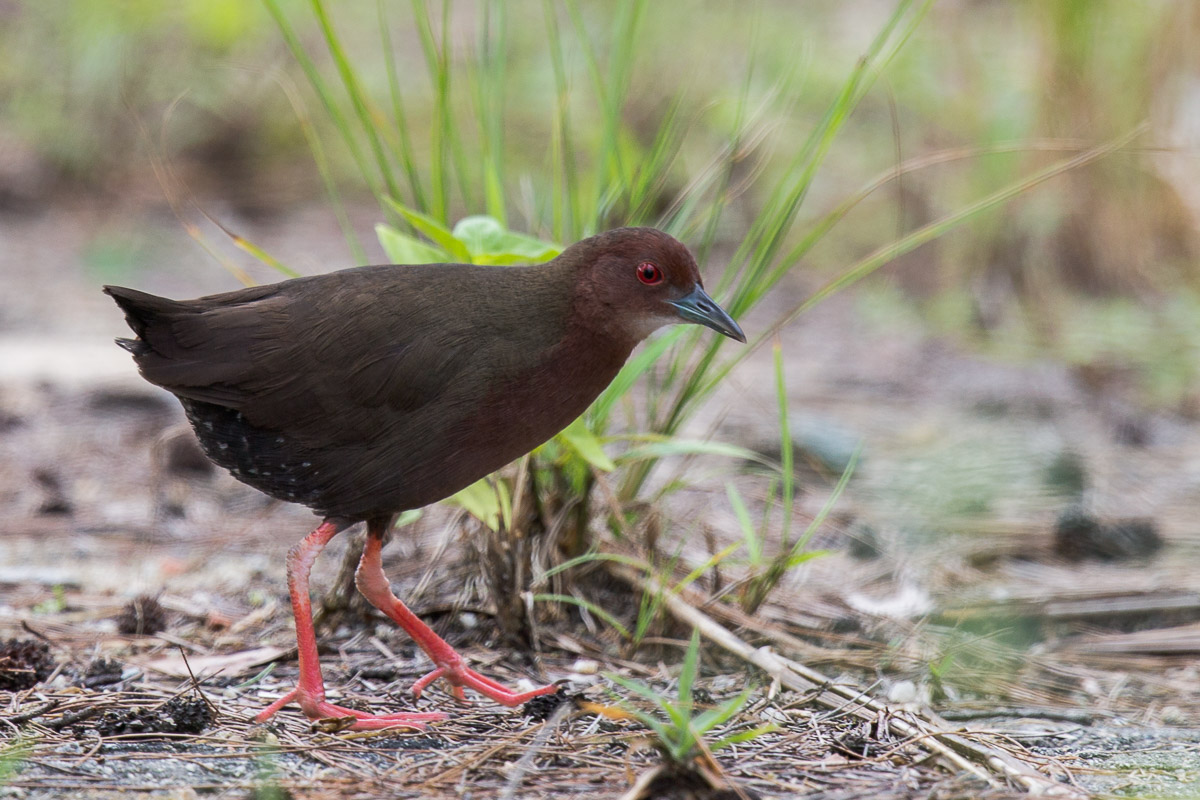Scientific Name: Zapornia fusca
Malay Name: Sintar-Kecil Belacan Biasa
Chinese Name: 红胸田鸡
Range: Found from Pakistan to India, China, Japan and Southeast Asia
Taxonomy: Polytypic. Subspecies are: fusca, zeylonica, phaeopyga, erythrothorax.
Local Subspecies: fusca
Size: 21-26.5 cm
Identification: Distinguished from Red-legged Crake by plain wings, cold dark olive-brown upperparts, deep reddish-chestnut underparts, indistinct whitish-and-blackish vent-bars and green-based dark bill. Juvenile resembles adult but has darker upperparts and brownish-grey bars/mottlings at underparts.
Similar looking species: Red-legged Crake, Slaty-legged Crake, Band-bellied Crake
Habitat: Freshwater wetlands and wet grasslands at the edge of ditches and canals.
Behaviour/Ecology: Active mainly at dusk and in the early morning when they will forage at the edges of reedbeds and short distance from dense cover.
Local Status: Uncommon resident
Conservation Status: Least Concern (BirdLife International 2016)
Location: Lorong Halus, Kranji Marsh, Bishan Park, Tampines Eco Green, Punggol Barat, Marina Barrage and Gardens by the Bay.
- Bird List Revision for August 2020 (Revisions)
- Local extinctions of Singapore birds (Science)
- A modest Big Month for November 2025 (Birders' Stories)
Conservation Status: IUCN Red List Page
Sound Recordings: xeno-canto Link
Wikipedia Entry: Wikipedia Link
eBird Species page: eBird (Ruddy-breasted Crake)
References:
BirdLife International. (2016). Zapornia fusca. The IUCN Red List of Threatened Species 2016. https://dx.doi.org/10.2305/IUCN.UK.2016-3.RLTS.T22692699A93365192.en. Accessed on 1 January 2023
Robson, C. (2014). Field guide to the birds of South-East Asia (Second Edition). Bloomsbury Publishing, London.
Taylor, B. (1998). Rails: A Guide to Rails, Crakes, Gallinules and Coots of the World. Yale University Press.
RECOMMENDED CITATION
Bird Society of Singapore. (n.d.). Ruddy-breasted Crake. Retrieved on February 14, 2026 from https://singaporebirds.com/species/ruddy-breasted-crake.




